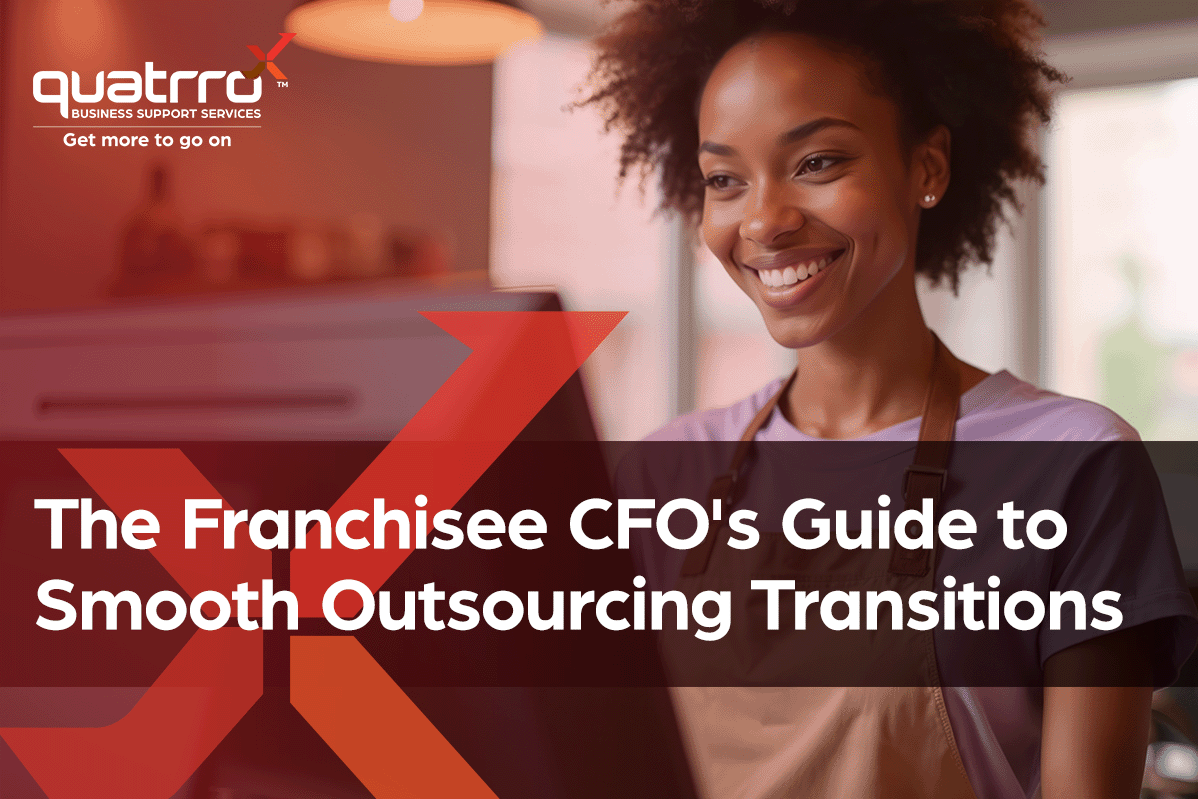Blog Details
How to Outsource Your Accounts Payable
June 18, 2024

Outsourcing your accounts payable (AP) to a trusted partner can be a great way to optimize your business spending. But how do you know if it’s the right move for you and your business? Here’s everything you need to know about AP outsourcing.
Is Outsourcing Accounts Payable Right for Your Business?
Three important things to consider when deciding whether to outsource your AP work are the volume of invoices your team processes, the complexity of your transactions, and the expertise of your current staff.
Outsourcing can be a great help to a small business growing rapidly. SMB’s that experience sudden growth can find their in-house team overwhelmed by the increasing volume of invoices and payments.
This bottleneck can slow down operations and lead to delays in payments, which might harm vendor relationships.
Larger companies also benefit significantly from outsourcing. In their case, an outsourced AP partner can enhance operational efficiency and shift the focus of the in-house team to strategic initiatives.
Pros and Cons of AP Outsourcing
Outsourcing your AP offers several benefits. First, it can lead to cost savings by eliminating the need for an in-house team dedicated only to AP tasks. Through outsourcing, you can reduce overhead costs associated with salaries, benefits, training, hardware, software, and more.
Second, you can enhance efficiency by leveraging the expertise of specialists who use the latest AP technologies and industry best practices. These providers have systems in place to quickly and accurately process invoices and manage payments, which reduces errors and saves time.
Finally, outsourcing allows you to tap into a pool of AP expertise. Providers can offer insights and solutions specific to your industry that may not be available in-house.
Outsourcing your AP could potentially come with downsides as well. One concern could be feeling a loss of control over your business’s financial operations. When you outsource, you rely on a third-party company to manage critical processes for you, which can make some owners feel uneasy. Data security could be another significant concern. Sharing financial information with an external provider can presents risks.
Businesses should thoroughly evaluate any potential outsourcing partner to ensure they can maintain the level of control and involvement they would like in the process, and that the provider has robust security measures in place.
Services You Can Outsource
The scope of outsourced AP services can vary based on what your business needs. If you have never outsourced below, you might consider starting with contracting out basic tasks such as data entry. Outsourcing the manual input of invoice data can free up a tremendous amount of your staff’s time for other work.
You can also simply contract out the entirety of your invoice processing. This not only includes data entry but also verifying invoice details, matching invoices to purchase orders, and ensuring that the invoices are approved for payment at the appropriate time.
Payment execution can also easily be handled for you by a third-party provider, managing your outgoing payments, through any mode, based on approved invoices. They ensure payments are made on time, using the correct methods and adhering to your company’s policies.
How to Outsource Accounts Payable (AP)
If you decide that outsourcing AP is the right move for your business, the next steps involve finding and integrating with a provider.
Look for providers with a proven track record in your industry who can offer case studies or references from other clients. Assess their technology to ensure it meets the needs of your business and that they have security measures in place to protect your data. Consider their cost structure, ensure it aligns with your budget, and expected ROI.
Make sure you establish a process for regular updates and feedback. It’s essential to keep an open line of communication to address any issues promptly and ensure the partnership remains beneficial for both parties.
The provider should use AP automation tools that integrate seamlessly with the financial system. This integration is important because it gives you real-time visibility into your AP processes and ensures that data flows efficiently and accurately between the systems.
Given the sensitive nature of financial transactions, your selected provider must have robust security protocols in place. This includes data encryption, secure data storage solutions, and compliance with financial regulations to protect your company’s and your vendors’ information.
As your business grows, your AP needs will evolve. Your selected provider should be able to easily accommodate increasing volumes of invoices and payments, as well as potentially expanding services to match your business’s growth.
Preparing For The Switch
Before you switch to an outsourced service partner, it’s important to organize your data. This means compiling all your invoices, contracts, and vendor information in one place. A well-organized dataset simplifies the transition and helps in minimizing errors during the data migration process.
Informing your vendors about the change is another important step. Send out a clear and concise communication detailing what the change means for them and who they can contact if they have questions. Ensure your vendors are aware of, and comfortable with, the transition. Your new outsource service provider can often provide templates for these communications, or may even be willing to do the legwork for you.
Prepare your team for the change by holding training sessions to familiarize them with any new or changing processes. Explain how their roles might evolve and the benefits that outsourcing will bring, such as freeing up time for more focus on strategic tasks.
Measuring Success
To gauge the success of your outsourced AP operations you should monitor key performance indicators (KPIs).
One indicator to watch is the invoice processing time. Track how long it takes from invoice receipt to processing and making a payment. A decrease in processing time is a good indicator of improved efficiency.
Another key metric is the accuracy of invoice processing. Monitor the error rate in invoice data entry and reconciliation. An effective outsourcing provider should significantly reduce these mistakes, ensuring that payments are accurate and on time.
Cost savings is another vital metric. Assess the financial impact of outsourcing by comparing your total costs before and after outsourcing your AP functions. Include factors such as labor costs, software subscriptions, and any penalties avoided due to improved payment accuracies and timeliness.
Regular meetings, whether in person or virtual, can help both parties stay aligned on the KPI’s. Use these meetings to discuss performance, address any concerns, and make adjustments to processes as necessary.
The Right Outsourcing Partner For You
Ready to take the next step towards streamlining your business’s financial operations? Quatrro Business Support Services is here to guide you through the journey of outsourcing your accounts payable processes. With our expertise and tailored solutions, we will help you unlock efficiency, security, and cost savings for your business. Contact Quatrro today to learn more about how we can transform your AP operations and propel your business forward.








